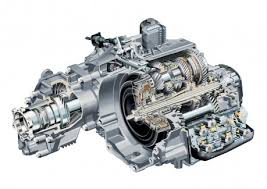Mobile:+86-311-808-126-83
Email:info@ydcastings.com
die cast manufacturers
Die casting is a highly versatile manufacturing process that has gained significant popularity in various industries due to its efficiency and ability to produce complex shapes with high precision. In this article, we will explore die cast manufacturers, their role in modern manufacturing, and the various applications of die casting.
Die casting manufacturers specialize in producing parts by forcing molten metal into mold cavities under high pressure. The process not only ensures the production of intricate shapes but also delivers superior surface finishes, minimal machining, and reduced material waste. Common materials used in die casting include aluminum, zinc, magnesium, and copper alloys. Depending on the material, manufacturers can choose between two main die casting methods hot chamber and cold chamber die casting.
One of the primary advantages of die casting is its ability to produce large volumes of parts efficiently. This makes it an ideal choice for industries such as automotive, aerospace, electronics, and consumer products. For instance, die cast manufacturers play a crucial role in the automotive industry by providing components like engine blocks, transmission housings, and structural parts. These components benefit from the lightweight yet strong properties of die-cast aluminum and zinc alloys, which contribute to overall vehicle performance and fuel efficiency.
The electronics sector also relies heavily on die casting for producing housings, heat sinks, and enclosures for various devices. By utilizing die casting, manufacturers can create components with complex geometries that ensure optimal thermal management and protection of sensitive electronic parts.
die cast manufacturers

Die cast manufacturers are continually adopting advanced technologies to enhance their production capabilities. Automation, computer-aided design (CAD), and computer numerical control (CNC) machining are being integrated into the die casting process. These advancements not only increase production speeds but also improve the consistency and accuracy of the finished products.
Moreover, sustainability is becoming a focal point for many die cast manufacturers. As industries push for greener practices, recycling and reusing die cast materials have gained traction. Manufacturers are exploring ways to reduce energy consumption during the die casting process and minimize environmental impact through various initiatives.
In conclusion, die cast manufacturers play a vital role in the production of high-quality components across numerous industries. Their ability to deliver precision, efficiency, and complex shapes has solidified their position in modern manufacturing. As technology continues to advance and sustainability becomes paramount, the die casting industry is poised to evolve further. As a result, die casting will likely remain a preferred method for manufacturers seeking to meet the ever-growing demand for innovative and reliable products.
-
Understanding Metal Casting TechniquesNewsApr.02,2025
-
Understanding Exhaust Manifolds for Enhanced Engine PerformanceNewsApr.02,2025
-
The World of Metal FabricationNewsApr.02,2025
-
Key Components for Pump and Turbo EfficiencyNewsApr.02,2025
-
Essential Tools for Automotive Maintenance and RepairNewsApr.02,2025
-
Durable Valve Components for Effective Water ManagementNewsApr.02,2025











